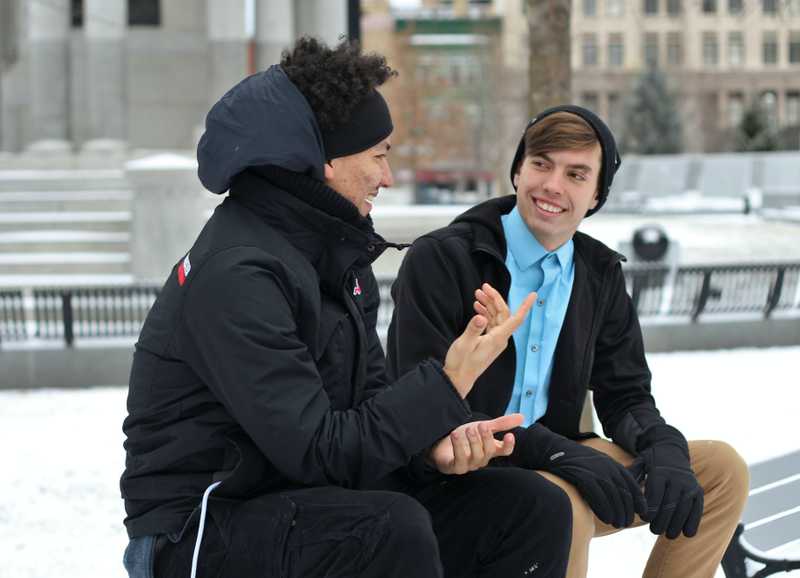In a 1996 episode of “The Simpsons,” character Helen Lovejoy pleads, "Won't somebody please think of the children!" during a debate among the townspeople of Springfield. Few phrases spring to mind as readily as that one when thinking about the legalization of adult-use cannabis and the children we hope somebody (please) is thinking of.
According to a 2017 study by the Canadian Centre on Substance Abuse and Addiction, after alcohol, cannabis is the most consumed substance in Canada. This statistic indicates that even despite its legal status, kids in this country may be exposed to the plant and its associated products sooner than most are. That marijuana was against the law only gave parents the licence to be dismissive when talking to their kids about the plant. It was easy to say, “It’s illegal, don’t use it,” but marijuana legalization is shaking all that up.
To understand how to build a conversation around marijuana, it helps to see how the changing legal landscape is shaping adolescents' perceptions of cannabis.
Teens Think Marijuana Is Safer Than Alcohol
In Canada, the perception of marijuana’s negative side effects is dropping among teens 14–19, and many think it's safer than alcohol. Over half of 10th- and 12th-graders, according to one survey, believe that consuming marijuana "would be detrimental to the brain in some capacity, but had a limited understanding of how and why."
Although cannabis consumption may not lead to a fatality, the link between cannabis and brain development is of interest to many scientists because of how concerning it is. The same goes for data possibly connecting adolescent marijuana use to schizophrenia and other psychoses.
In Canada, where teens and adults alike consume marijuana at higher rates than in other developed countries, it's crucial for youth to understand the consequences of frequent adolescent marijuana use.
The new approach to cannabis education relies on giving them facts to help them make their own decisions in the future. To help Canadian families open up an honest conversation at home and get consistent messaging at school, the government and its agencies are jumping in to assist.
Adopting a More Cannabis-Positive Outlook
When it comes to cannabis education in school, it's important to recognize we've been down this road before. There was agitation when sex education came to Canadian classrooms. Parents feared the negative impact of teachers spouting anything but "abstinence only." And school boards worried that parents were finding it too awkward to talk to their kids honestly about sex.
Now the subject matter is different, but the territory is well travelled. The Canadian government sees cannabis legalization as an opportunity to convey facts rather than treat it as the elephant in the room. Instead of pretending marijuana doesn't exist, parents and teachers can address it head on and make sure their kids are set up to make thoughtful choices. They may even learn something in the process.
Parents, Here's How to Talk to Your Teenager About Marijuana
Medical marijuana has been legal in Canada for years, but experts say the additional activity around non-medical products—legal stores, online retail portals and home grows included—could prompt more youths to believe that the cannabis is safer than it indeed is. Here's how to talk to your kids about marijuana, from three Canadian agencies.
RELATED: ONTARIO STORE BRANDING TAKES THE MINIMALIST APPROACH
- Drug-Free Kids Canada suggests acknowledging the changing cannabis landscape instead of using "when I was a kid" language. The charity organization wants to remind parents that they're the most compelling influence in their kids' lives. They created a program to help parents dig into that power and use it to answer tough questions.
- Health Canada recommends planning cannabis talking points rather than jumping into the discussion on impulse. Above all, says Health Canada: "If your teenager is using drugs you may feel anger, sadness, fear or confusion. Those are natural reactions. But talking about the issue is more productive than talking about your feelings."
- Parents who are severely flummoxed at the thought of talking to their teen about marijuana might find the workbook by Here to Help a good starting place. Here to Help is a British Columbia-based organization led by mental health nonprofits. It suggests ideas on how to start a more "natural" conversation by using real-life opportunities to delve into issues. Other tips include telling parents to sit next to, instead of across from, their kids for a less confrontational stance.
Whatever your thoughts are on marijuana consumption and the upcoming legalization of recreational cannabis, most experts agree that it’s better to take a proactive approach to talking to your children about the plant. Even Helen Lovejoy would concur.
Photo credit: Anna Vander Stel
